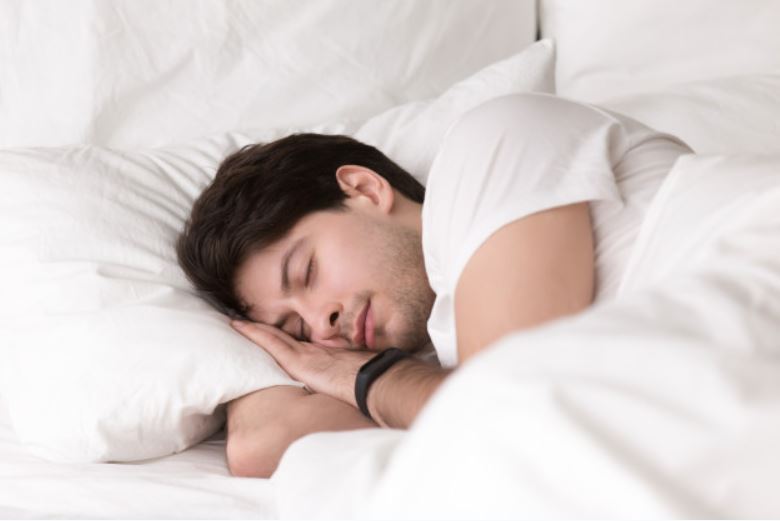
Do you ever wonder what aspects impact your sleep quality and sleep patterns? You might be surprised to know that there are a number of reasons why you might have challenges sleeping, your sleep is disrupted, or you are not having as great a sleep as you could be. If you are someone who has a tough time resting and waking up feeling rested, you likely know that poor sleep can contribute to feeling tired and irritable, suffering from brain fog, and, at worst, suffering from heart disease and stroke.
Getting a night of great sleep isn’t simply about setting aside enough time for sleep. Rather, it’s about ensuring you create the best sleep conditions so that your time in rest is not interfered with and you can successfully complete the four stages of sleep.
To ensure that you are meeting all the criteria for a wonderful sleep, we’ve got a good list consisting of 8 things that truly affect your ability to get a good night’s sleep.
Your Cellphone
According to Harvard studies, blue light— that is, something that comes from our mobile screens—really does throw a wrench in your body clock. Studies have shown that instead of helping your mind and body wind down, what these screens do instead is stimulate your brain, which in turn makes it much more difficult to remain in a calm state, fall asleep and get a good night’s sleep.
While it can seem relaxing to lie down in bed and scroll through social media before closing your eyes, experts warn against this because it could actually be detrimental impacting the quality of your sleep. Instead, people should opt for something that doesn’t distract them in this manner – perhaps reading a book or listening to some soothing music. If you do need to look at a screen, experts recommend limiting your phone time to the hour before you fall asleep and wearing blue-light-blocking glasses to limit the effects.
Alcohol and Sleep
In addition to screens, experts do say that the effect of alcohol on sleep can be quite detrimental. While it is certainly true that a nice glass of wine can help you unwind after a hard day, or taking in a beer while watching the game at night can help you relax, alcohol does impact sleep in important ways.
And yet, many turn to alcohol as a sleep aid – according to studies, as much as 20% of Americans rely on various forms of alcohol to fall asleep. That said, even if people are turning to alcohol for assistance, it is actually the case that alcohol does more harm than good where sleep is concerned. While it might help you fall asleep quickly as you are trying to get to sleep, in the second half of your sleep, alcohol actually ends up disrupting your sleep.
Temperature Matters
Another important factor to look out for when trying to positively impact your sleep pattern and quality is temperature. For example, if your body is too warm at night, experts agree that you will have a hard time completing REM sleep because the optimum room temperature for ensuring this process is approximately 65 degrees Fahrenheit (or 18 degrees Celsius). To ensure that this temperature is in play, you should definitely check your thermostat before falling asleep.
In addition to watching the room temperature, you should also consider your own body temperature. That is, our own body operates on a process known as thermoregulation. What this entails is a 24-hour circadian cycle that allows the body to adjust its core temperature. And so, if the body is operating at a lower body temperature – especially at night – experts agree that this will actually help the person fall asleep quicker and stay asleep longer.
Nap Properly
Another strategy to positively affect sleep is to take no more than a 20-minute nap in the afternoon. Not only will this help give you an extra burst of energy, but it will ensure that you won’t have a hard time waking up from that nap or falling asleep at night.
Depression and Anxiety
Another thing to look out for is the state of your mental health – namely, whether you have anxiety and depression. According to experts, if you have either, it can actually negatively impact your sleeping patterns, especially your ability to reach optimum levels of REM sleep. If you are dealing with anxiety or depression, you will certainly want to talk to your doctor or mental health professional.
Caffeine Disrupts Rest
In addition to these health issues, you will also want to stay away from caffeine late at night as it acts as a stimulant and can, as a result, hamper your sleep and increase your bouts of restlessness, stomach cramps, elevated heart rate, and the frequency with which you urinate.
Sleep Apnea
Another challenging area where your sleep is concerned might also be sleep apnea. According to experts, this condition is one of the leading causes of interrupted sleep as it affects approximately 12% of Americans – though it is also the case that approximately 80% of cases are undiagnosed. If you suffer from sleep apnea, your symptoms may include: snoring, excessive daytime fatigue, difficulties concentrating and retaining memory, mood swings, and headaches.
Exercise
Finally, if you want to positively impact your sleep, you will want to exercise. That said, depending on your body clock, it may not be the best to exercise in the evening before sleep.
You may be interested in: Helping Your Kids Develop Healthy Sleep Habits

